It’s more than just worship styles and bring-and-share suppers, say our panel of experts. Emma Fowle speaks to four leaders about what it takes to create a truly inter-ethnic Christian community
Few would argue that modern Britain is anything but thoroughly diverse. And so it stands to reason that our churches should reflect the multicultural society we live in. Such a Church would foreshadow that famous heavenly vision of “a great multitude…from every nation, from all tribes and peoples and languages” (Revelation 7:9, ESV), joining together to worship God. A diverse church would also indicate we are following Jesus’ great commission to “make disciples of all nations” (Matthew 28:19, emphasis added).
Jesus said that the world would know us by our love for one another (John 13:35), but the Church has not always lived out that love well – especially across racial and ethnic divides. Furthermore, the challenge to build a diverse church may appear simple enough on paper, but with relatively new terms like ‘institutional racism’ and ‘unconscious bias’ being hotly debated, it’s easy for leaders to feel overwhelmed. Even putting the culture war to one side, issues remain. Is it possible to achieve healthy diversity while also avoiding tokenism and box-ticking? Is there ever a place for monocultural congregations – perhaps where the English language is a barrier? What matters in this conversation, and what is just a sideshow?
I gathered together four Christian leaders to discuss the issues.
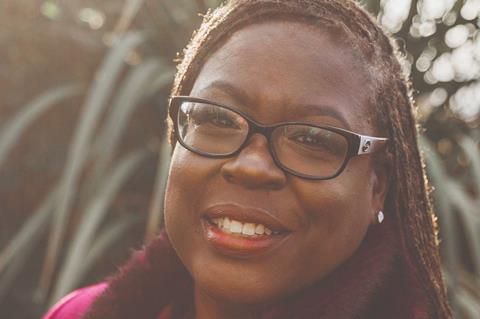
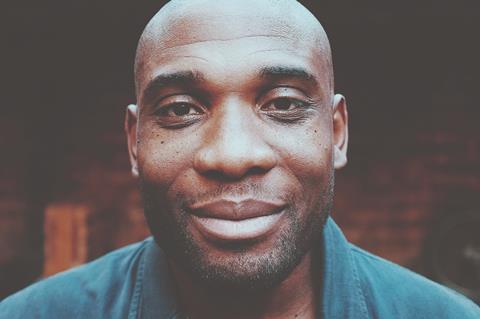
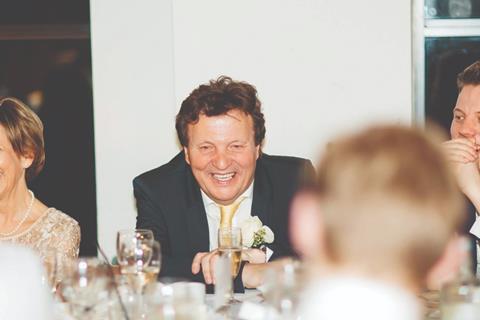
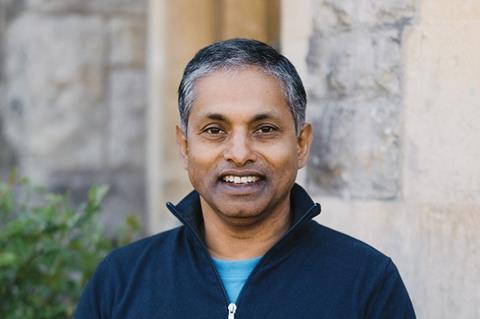
Emma Fowle (EF): What does having a diverse church mean to you?
Mohan Seevaratnam (MS): I am of Sri Lankan Tamil ethnicity, but I was born and brought up in London. One of my challenges growing up was: Am I British, or am I Sri Lankan? It was coming to faith in Christ that enabled me to embrace both. We all have different cultural history but, for me, it’s the heavenly vision that inspired Mosaic – and still inspires me.
We don’t know many things about heaven – whether there’ll be football or cricket, or what type of food we’ll eat – but we do know that we will be gathered from every nation, tribe and tongue in unity and diversity. For me, that has to be every church’s aim. It’s not just some sideline thing. It’s driven by scripture.
Steve Derbyshire (SD): Our vision [at City Gates] is to represent the constituency we’re in. Like most London churches, we have lots of nationalities, but when it comes to casting the local vision, we’re trying to build a church that is interracial, where we are learning to relate to one another. As a white leader, I’m finding that, after 30 years, I’m just scratching the surface.
EF: When we talk about diverse church, there are lots of different terms used: multiracial, interracial, interethnic, multi-ethnic. Is there one term that is better than another?
Ben Lindsay (BL): The problem with all these different terms is that they will mean different things to different people, depending on your cultural context. If you’re talking to the average member of the congregation, I don’t know if it matters to them too much. When I’m engaging with mayors and violence reduction units, I often have to remind people that you can come up with acronyms galore, but the local community don’t really care about this stuff.
But when you’re talking about policies and strategies, a common consensus really does make a difference. Ultimately, I’d say: Who is at the decision-making table? Is it a bunch of white people deciding what we should call Black and brown people? Is it just middle-class people, or are there working-class people as well? Whatever term you come to, make sure the decision-making table represents the community you are serving.
Olivia Amartey (OA): I totally agree. It’s very easy for us to be distracted by terms, but sometimes it feels like a bit of an academic exercise. What matters is experience. When my parents came to the UK from Jamaica in the late 50s, they wanted to find a place of worship, but they found no place where they could belong. That caused them to have to find a place where they would not be in a multi-ethnic community. It was a place they felt they belonged, where people looked like them and could understand their culture.
I thank God for that vision [in Revelation] that we are made of all tribes and all nations. The Church has to mirror that. So when we’re talking about intentionality, that’s a great place to start, because we need to demonstrate that practically.
SD: We never really mention these terms in church very often…we do as a leadership, but not in church. I don’t believe that we are prejudiced, but I do believe that we are biased, and so we’ve got to really be intentional [about correcting that].
WE’VE GOT TO ACKNOWLEDGE THE SIN IN OUR OWN HEARTS AND IN OUR INSTITUTIONS
EF: Mohan, you were very intentional about what you were doing with Mosaic. Tell us about that.
MS: Going back to that heavenly vision, we say we’re drawing from every people, tribe and tongue, but my experience is we pay lip service to it. Every church will say: “We’re welcoming, we’re inclusive of all people.” I don’t think there’s a church that wouldn’t say that. But what does that mean when you drill down?
We wanted our community, and the church leadership, to reflect the High Street in Harrow. It’s been a great journey. There have been lots of mistakes and challenges, but unless we embrace this intentionally, it won’t get the traction it needs. And that’s for every leader, of every ethnicity. We also wanted to decrease the cultural distance someone has to go to find faith in Christ. They don’t have to leave their culture to find Jesus and be part of our family. And we wanted to increase our cultural intelligence, because we all need to learn from one another.
Whether you’re born in Yorkshire or St Helen’s or wherever, we want to celebrate and honour that. So for bring and share, we said: “Bring your heart food for the blessing of the people.” If that’s sausage rolls, samosa or jerk chicken, you bring it, we’ll enjoy it together.
EF: What about our times of worship? Can they be too monocultural, or is that not an issue?
MS: It’s tricky, because there’s two different aspects to it. Western Christendom has dominated the Christian landscape for the last 1,400 years – of which I am a testimony to. Missionaries came to Sri Lanka from Britain and America and whole villages in the north of Sri Lanka came to faith. I’m really grateful for that. But now, the worldwide Church is growing in the Global South. Should they be singing Western hymns and songs? Or is there something about receiving from the global Church?
If you’ve got people from different nationalities [in your church], ask them to bring something, and let’s use the cultural richness in our churches to bring something of the kingdom and celebrate with them.
BL: I think it’s really complicated with worship, because there are so many different expressions. If there is a church out there which ticks every nationality, subculture and generational style, let me know. I’ll sign up immediately!
We can talk about food or worship, but I don’t think it’s as important as loving and understanding the communities we serve. I’m a lot more interested in sermons that connect with the issues your communities are dealing with, in prayer [that is] really speaking into community concerns. Are we churches that are reactive or proactive?
I am not saying worship music isn’t important. But there are other things the Church should be focused on. The fact that you have somebody doing something in their native language is fantastic. But it has the potential to be superficial if, underneath, we’re still not really giving a monkey’s about the issues which the communities you’re serving are dealing with. In the London context, are we talking about Chris Kaba? Are we praying about Child Q? We’re not talking about the stop and searches that happen to Black and brown communities, or the disproportionality of violence and knife crime. Are these types of things being spoken about and prayed about on a regular basis?
We can talk about food or worship, but I don’t think it’s as important as loving and understanding the communities we serve
EF: Do you feel that historically, white church leaders have not stepped up in that area?
BL: I can only talk from my perspective, the research I did when writing my book and people I’ve spoken to since. George Floyd’s murder highlighted what church leaders have specifically done for Black and brown communities – or haven’t done. There was something very powerful [about] shining a light on how we deal with safeguarding, racism and the distribution of power. It’s easy for church leaders to do foodbanks, CAP [Christians Against Poverty] or Alpha. But can we get more specific?
Alpha is fantastic – I was saved on an Alpha course – but if I took it into my local barber shop in south-east London, most of the people there have been brought up in church. All the classic Alpha questions – like ‘Who is Jesus?’ ‘How do I read my Bible?’ – most people know this. But can we talk about other African religions, imperialism or white Jesus? Can we talk about why the money that churches bring in often doesn’t filter down to the working-class communities? These are complicated conversations, which make or break people’s decision to come to Jesus.
If I want different foods, I can go to my takeaway. I’m not expecting church to be the place where I’m gonna get a variety of food. [Bring and share meals are] all very nice but, in some cases, people are dying. People are facing extreme discrimination. George Floyd was murdered horrifically in 2020. Three years later, I speak to a lot of church leaders and it’s often like: “We’ve solved racism, let’s move on. Why are we still going on about this?”
Everybody has prejudice in them. It is not bias, it’s prejudice. I have prejudices. I’ve got to unlearn some things which are not helpful. There are things that I grew up with – prejudices – which I am still, at 45, trying to unpack. Ultimately, we’ve got to acknowledge it. If we don’t, we’re not going to get to the root cause.
OA: After George Floyd, I have never felt more angry. People were saying sorry all over the place, which was great, but I felt: We’ve been here before. We keep talking about it. What on earth is the point?
Some of our leaders are prejudiced. As a Black female, I see that. Our generation were taught: “You see it; you don’t say it there. You talk about it at home.” You don’t call it out, because I am of a generation who were trying to assimilate. I’ve had enough of trying to assimilate! I see it, and I’m calling it out.
Especially with the growth of racism in certain places, it feels like we’ve gone a little bit backwards. We have to work doubly hard to make sure people feel comfortable and welcome. It doesn’t matter who’s leading, as long as I feel welcomed as a Black female.
MS: We are not good at naming racial prejudice as sin. And if we’re going to build diverse churches, we’ve got to acknowledge the sin in our own hearts and in our institutions.
Peter preached at Pentecost, he was filled with the Spirit, yet there was still prejudice in his heart against the Gentiles. We can still be spirit-filled, born-again Christians and this be an ongoing challenge – just like sexual temptation, just like greed.
Following George Floyd, one of the first things we did at Mosaic was to name the challenge. It’s a human sin to dislike ‘other’. We see it in our own life, “nation shall rise against nation” [Matthew 24:7]. But we have, in Jesus, a cross-centred solution. He broke “the dividing wall of hostility” [Ephesians 2:14] between Jew and Gentile. We need to intentionally live in the freedom of that, so I want to celebrate who you are, who God has made you to be, in our community.
EF: But aren’t food and worship practical ways of ensuring people don’t always feel they need to assimilate into a different culture? I guess we’re saying that on top of these (arguably more superficial) elements, we need to think about how we outwork our intentions in our local communities, and talk about the issues that people care about?
BL: Yes, that’s a fair summary. A lot of it comes down to power as well. I would like to see more white leaders – particularly those serving big ethnic minority communities – ask: “Am I the best person to be leading this congregation?” Some [white leaders] have been in leadership for 20 or 30 years, and have a whole heap of Black people in their [churches]. They’re still at the top, and their leadership team doesn’t represent their community. That’s a problem. If you get the leadership and power conversation right, the worship conversation becomes easier, the prayers, the illustrations you use in your sermons…it will all flow from that.
IN ORDER TO MAKE DISCIPLES OF ALL NATIONS WE MUST LOVE PEOPLE FROM ALL NATIONS
EF: For those of you that already have a diverse leadership team, has that been easy to put in place?
SD: I’m going to be retiring in about twelve to 18 months’ time. I won’t be leading our church for much longer. But I’ve been deliberate in raising people up from within the church. On my leadership team, I’m the only white person. When I came to Ilford, I thought: This is where God has planted me, and these are the people that [God has] given to me, so these are the people I’m going to develop. So I started to intentionally develop leadership from within.
MS: You can’t do it for token representation. We don’t compromise on biblical standards. One of the challenges for the Church is for white, Caucasian people to sit under the leadership of a non-white person. But I also know some South Asian people who’d rather sit under a white leadership! So it’s complicated.
We don’t believe that leadership was given to one ethnicity, so churches need to address this. In the Anglican church in Harrow, which is one of the most diverse areas in London, there’s not one non-white leader among 20 churches. Harrow has been diverse for a long time, so these are real key issues.
EF: Does language also make a difference? When you’ve got the added language barrier, is it easier just to worship in your own heart language?
MS: I certainly wouldn’t say you can never have a mono-ethnic church. I would say that, in a diverse, multi-ethnic context, how do we represent the gospel as something that breaks down barriers? Jesus’ great commission was to make disciples of all nations. That was to twelve Jewish blokes, as it happened, but it’s also for all of us. If we’re going to “make disciples of all nations”, all of us – especially leaders – must be people who love people from all nations, and are willing to learn from them too.
For me, it is going back into homes, probably. We focus so much on church services, running buildings and stuff, but especially now, in this post-Christendom phase, we need to go back to homes, just like in Acts, sharing in small groups more. That’s where we’re going to grow interculturally. It’s about: Who do I eat with? Who do I make friends with? Who comes into my home? We can learn about different cultures from a textbook but, fundamentally, it’s about – as Jesus modelled – asking: who are we engaging with? That’s how we’re going to change the world.












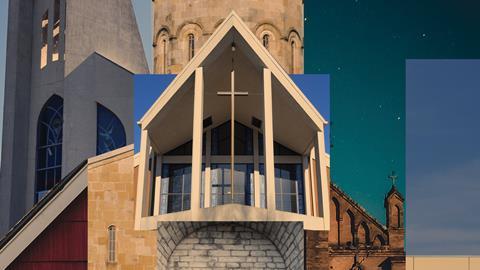

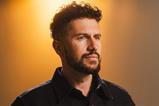























No comments yet